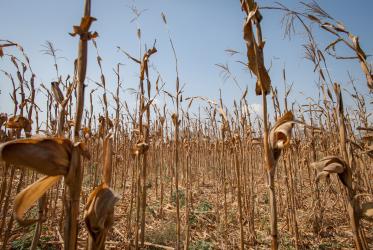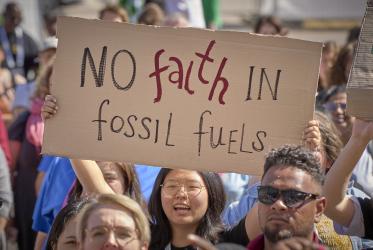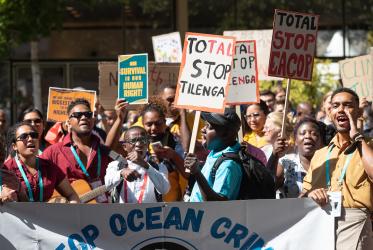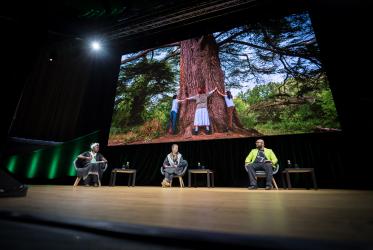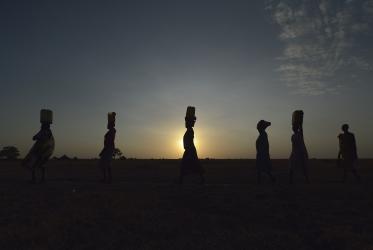"This is the year to act. We, the people of the world, need you, the world’s religious leaders, to motivate your communities, to advocate and persuade others to take the necessary, if difficult, decisions."
This was the message from Ban Ki-moon and many high-level scientists yesterday, as we met in the Pontifical Academy of Sciences in Rome to discuss sustainable development and climate change. Now is the time when human beings have their greatest opportunity to address extreme poverty, plan for a sustainable future, and reduce the negative effects of climate change. The COP 21 meeting in Paris can be a historic moment in the life of our planet.
Politicians, diplomats, scientists, business leaders and religious leaders agreed that this is a crisis that calls all of us to leave our comfort zones and cooperate in new ways to make the great and necessary changes together.
Representatives from the Roman Catholic Church, the Ecumenical Patriarchate, Jewish, Muslim, Buddhist and Hindu organizations emphasized that we are facing a moral and spiritual crisis. Our relation to nature is intimately tied to our relation to God and to promoting justice.
In Rome, I was asked to address these issues from the perspective of religious leaders, reflecting on the spiritual and moral values that make for justice. As the general secretary of the World Council of Churches, I was introduced as representing the organization that has done the most to mobilize religious communities and peoples everywhere to respond to climate change. I was proud and humbled to acknowledge that this is true. The WCC, with our member churches and partners, have been leading the fight for climate justice for decades. We have also responded with the wholistic perspectives that are now on the UN agenda.
There is no time for triumphalism, only more hard work in the next months before the COP 21 meeting in Paris. The pilgrimage of justice and peace has become a clear framework and motivation to take new initiatives on all levels.
The right to hope is something we in the ecumenical movement have struggled for since its very beginning. Fostering unity and fellowship in the church is our calling. That means a call to bring together the church as a sign of the fellowship that God wants for humanity and creation, a unity in life. All humankind must be united in proper stewardship, making the necessary changes that can facilitate justice for the poor and for all those who are vulnerable to the effects of climate change. We are one in our quest for justice for the coming generations, our children and grandchildren. They all have the right to hope.


